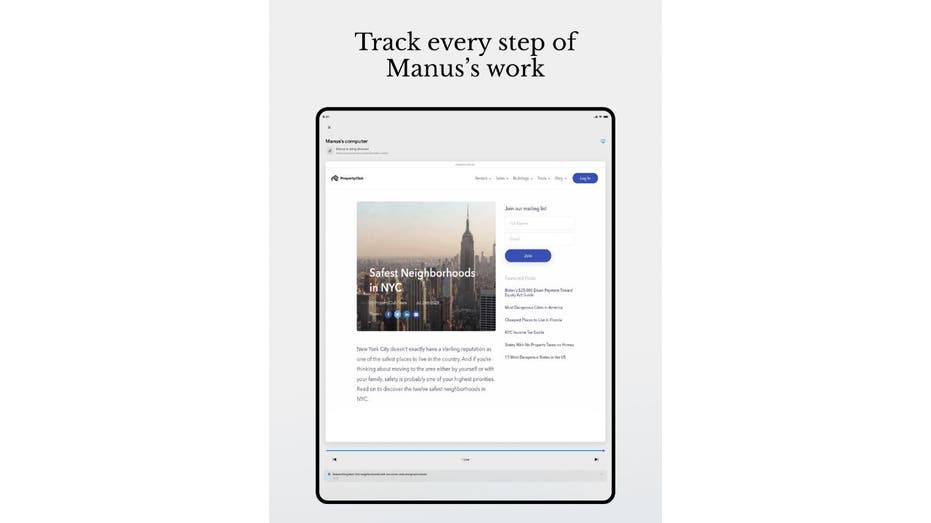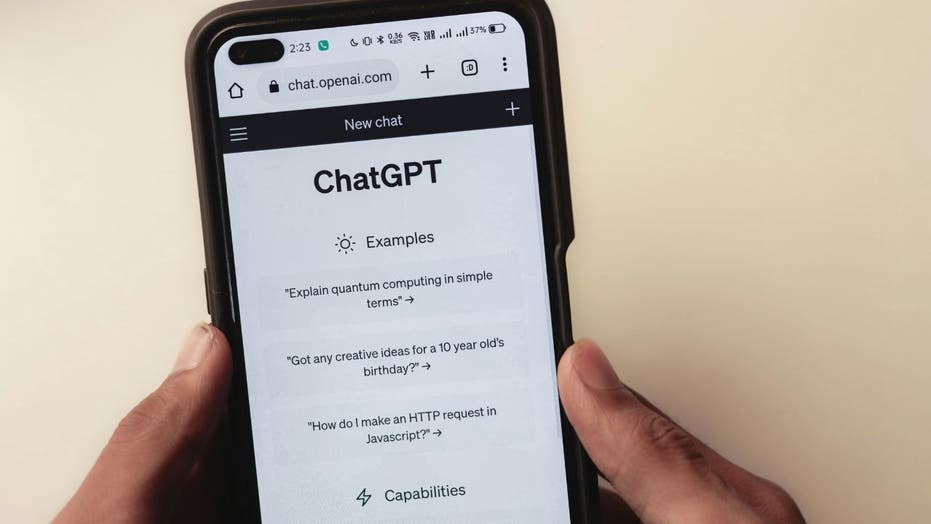- by foxnews
- 01 Jun 2025
First autonomous AI agent is here, but is it worth the risks?
Tech expert Kurt "CyberGuy" Knutsson says a new autonomous AI is a game changer that also raises privacy risks. Is your data safe?
- by foxnews
- 24 Apr 2025
- in technology

If you haven't heard the buzz about Manus yet, it's the new AI model unveiled by a Singapore-based company called Butterfly Effect. This isn't just another chatbot. It's one of the first truly autonomous AI agents, able to do its own research, make decisions and even carry out plans, all with barely any human oversight.
Sounds impressive, right? But here's the thing: While all this innovation opens up exciting possibilities, it also brings some serious privacy and security questions. Whether you're eager to try out the latest AI or you'd rather steer clear, it's worth understanding what Manus could mean for your personal data and digital safety.
It boils down to data privacy and security. When AI companies collect personal information - things like your name, email address, home location, social media posts and even photos - they often store it in large databases to train their models. If those databases aren't properly secured, they can become gold mines for hackers. Think of them as digital "honey pots": sweet and tempting to cybercriminals because of all the personal data inside.
But data leaks aren't the only danger. Even when the information is secure, it can be misused or manipulated in ways that are hard to detect. One of the biggest new threats is something called a prompt injection attack.
In simple terms, prompt injection is a way for attackers to trick an AI into doing something it wasn't supposed to. Researchers recently found that attackers can embed hidden commands in seemingly harmless text, like a website bio, email signature or even a social media post. When the AI reads that text during training or browsing, it can accidentally follow the hidden instructions, which might tell it to leak information, change how it behaves or give unauthorized access to private data.
Unlike most AI tools that respond to commands you give them directly, Manus is autonomous, meaning it can act on its own, follow links, read content and make decisions without human approval. While that sounds pretty cool, it's also what makes it a lot harder to spot when something goes wrong.
If Manus encounters malicious content, it could unknowingly follow a hidden prompt, compromise your data or alter its behavior, and there may be no obvious sign that anything has happened until it's too late. There are also some concerns about where Manus sends and stores data. Security researchers have traced data back to servers in Shenzhen, China, raising red flags about surveillance, jurisdiction and who might ultimately have access to your information.
So even if Manus isn't scraping anything too sensitive today, the combination of weak oversight, powerful automation and questionable data practices makes it far riskier than your average AI assistant.
We reached out to Manus AI for a comment on this article but did not hear back before our deadline.
As I've mentioned, whether you use Manus AI or not, your personal information will still likely end up in its datasets, so the best way to protect yourself is to make your information difficult to find. Here are some things you can do.
1) Be cautious about using Manus: With that level of autonomy, especially since it's a very new AI (not to mention the inconsistency in its privacy policy regarding governance), I wouldn't recommend using it quite yet. There's just too much damage it can do if it malfunctions or is subject to a prompt injection attack.
2) Keep your personal information under wraps: With so many companies selling and trading personal information, many of them to tech companies to train AI, it's a good idea to withhold your data unless you absolutely can't avoid sharing it.
3) Actively remove your personal information from the internet so your data can't be scraped by AI models like Manus: Set your social media to private, limit data collection through privacy settings and remove your information from data brokers and people-search sites. Autonomous cloud-based agents such as Manus are designed to extract and analyze vast amounts of online data, and your publicly available information can be swept into their training datasets without your knowledge or consent.
4) Use strong antivirus software to help defend against the broader attack surface created by autonomous AI systems: Manus' ability to act independently and interact with external systems increases the risk of adversarial attacks and malware transmission, so robust endpoint security is essential to protect your devices and data.
As we move forward with AI like Manus, it's exciting to think about the possibilities, but it's also important to keep our eyes open about what it means for our personal data. Even if you never use Manus yourself, your info could still end up in its training data.
So what can you do? Stay informed, take charge of your digital footprint and choose tools that prioritize your privacy. As AI keeps evolving, being proactive about your data is the best way to enjoy the benefits of innovation while keeping your personal info safe.
Follow Kurt on his social channels:
Answers to the most-asked CyberGuy questions:
New from Kurt:
Copyright 2025 CyberGuy.com. All rights reserved.
- by foxnews
- descember 09, 2016
Beach days benefit mental health and well-being as visits provide 'sea therapy'
Discover the benefits of sea therapy as experts highlight how beach visits can boost mental well-being, reduce stress and improve sleep through mindfulness and relaxation.
read more





